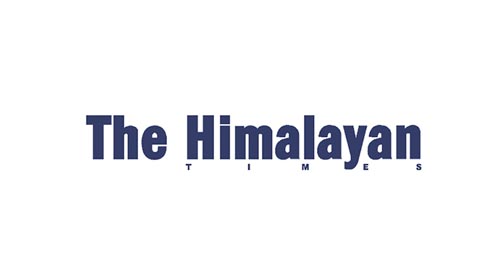EDITORIAL: No to NA businesses
Should a business promoted through the welfare fund of the Nepal Army flop, who is to be held accountable?
Nepal Army’s bid to make investments from its welfare fund in commercial ventures should be a big no-no. The institution cannot detract itself from its primary responsibility of protecting and defending the country. Civil society members apart, even former army officials agree on this. The Nepal Army (NA) keeps a huge welfare fund, contributed by soldiers who had served in UN peace-keeping missions over six decades, and it doesn’t know what to do with it. Although it started small, the welfare fund has ballooned to a whooping Rs 44 billion – Rs 38.6 billion in ready cash. Nepal is the world’s fifth largest contributor to UN peacekeeping forces today, with more than 5,700 soldiers serving in more than a dozen countries. Under the existing laws, the Nepal Army is forbidden from making investments in profit-making ventures, hence it wants the government to amend the Army Act.
In the past, the Nepal Army had made investments from the welfare fund in projects related to health and education. It runs good schools and colleges for the children of army personnel and operates a medical college in Kathmandu. But in recent decades, the army chiefs have tried to convince the government to allow them to invest in income-generating sectors. Since 2000, the army has been seeking permission to operate a bank. And, of late, it has shown interest in investing in hydropower projects, namely the Bhimdang and Dudhkhola hydropower projects in Manang and Solukhumbu respectively. It is also in the process of operating the textile mill at Hetauda, which has been closed for decades due to mismanagement, by adding new machinery. Following the 2015 Earthquake, the army has rebuilt the old Trichandra Army Hospital at Mahankal, Kathmandu to its original grandeur, but has added a huge commercial shopping complex to it and rented it out. The private sector is annoyed that the government has handed over construction contracts to the Nepali Army to build especially highways, which it is capable of doing. The Kathmandu-Tarai Expressway is one such example, which is said to cost more than Rs 200 billion.
Allowing the army to invest in commercial ventures will only see its welfare fund grow by leaps and bounds with each passing year. And with money comes clout – an opportunity to influence Nepal’s fluid politics. When an institution of nearly 100,000-troop strength has both money and guns, it is not long before it starts dictating the course of events, both political and economic, in the country. Given the subservient nature of our politicians, there is every danger of the army becoming the new power centre of the country, with them hobnobbing with the officers for petty political gains. Also while a commercial venture is supposed to make money, there is, however, no guarantee that it will. So should a business promoted through the welfare fund of the Nepal Army flop, who then is to be held accountable? The army has become assertive in its demands largely because governments, both past and present, have failed to deliver on all fronts. It would, therefore, be in the interest of the government to take a firm stand and draw the red line for the army.
Implement the rule
At least 33 passengers were feared dead after a long-route bus heading towards Kathmandu from Sarlahi plunged into the swollen Trishuli River in the wee hours of Friday. Police suspect that the driver’s fatigue could be the main reason behind the fatal accident. The people who survived the accident said the driver was driving the bus without a break as he was the only one to cover the distance in the night.
Considering the increasing rate of road accidents, the government had introduced a rule which required public buses plying routes longer than 250 km to have two drivers. But most of the bus owners do not hire two drivers to save money, and the traffic police also do not act as per the Transport Management Act-1993. So many people would not have been killed had the rule been strictly implemented by the traffic police. The traffic police can only charge Rs 1,000 for violating the rule, which is insignificant to the rule violators. The fine should be increased so that the bus owners employ two drivers on long routes as defined by the law. The traffic police should not allow a bus to ply the long routes unless it has two drivers. Saving lives of people should be the primary duty of the traffic police.






